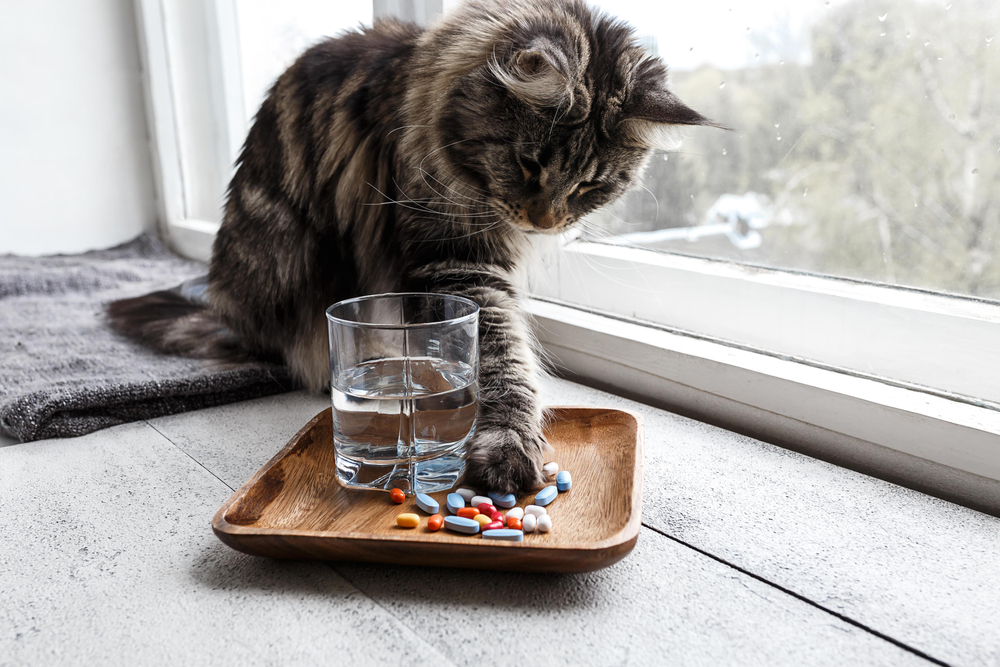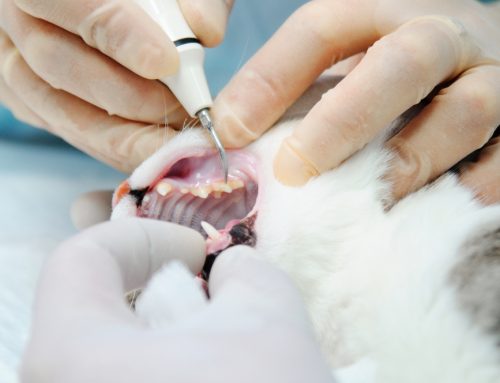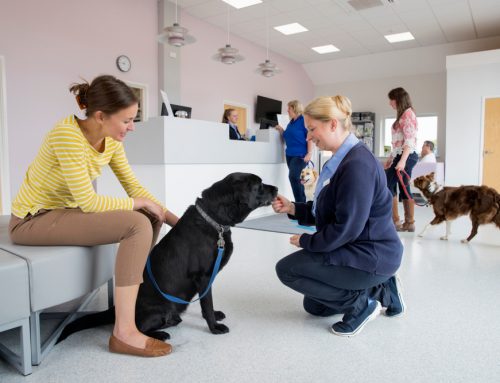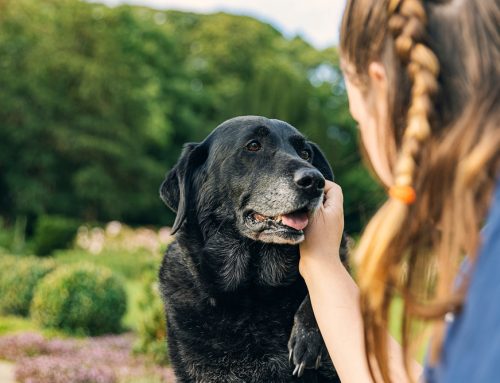Each year, the American Society for the Prevention of Cruelty to Animals (ASPCA) Animal Poison Control Center (APCC) works tirelessly to help veterinarians and pet owners address animal poisonings and exposures with their 24-hour poison control hotline. Additionally, they publish a yearly top 10 list of the most commonly reported pet toxicities. According to their 2019 list, and in honor of National Animal Poison Prevention week, we want all owners to know they should be wary of the following common pet toxins.
#1: Over-the-counter medications
Topping the list again are readily available human medications such as ibuprofen, acetaminophen, topical joint products, and herbal supplements. Since these popular medications are often kept in purses or backpacks, many sneaky pets can easily access them, resulting in potentially toxic situations. Do you think a child-proof cap will keep your pet from swallowing a handful of human meds? Think again. With their sharp canines and expert chewing teeth, a plastic bottle is no match for a determined dog or cat. Play it safe and keep backpacks, totes, and other personal items stowed high away on hooks or in drawers where pets cannot reach them.
#2: Prescription medications
Not far behind over-the-counter products on the list of top 10 pet toxins fall prescription medications—both human and veterinary—which, together, accounted for nearly 27% of APCC reported cases in 2019. According to Georgetown University McCourt School of Public Policy, 131 million Americans (i.e., 66% of all U.S. adults) use prescription drugs. Some of the most common culprits include thyroid, ADHD, cardiac, and antidepressant medications. Veterinary medications are also high on the list, since many are flavored for ease of administration, fooling pets into thinking they’re enjoying a treat, not a medication. As with all other medications, keep prescription drugs stowed away in cabinets or drawers where pets do not have access. For particularly mischievous pets, you may need to consider installing locks.
#3: Chocolate, grapes, and other foods
Fortunately, most pet owners are familiar with chocolate toxicity, yet this ingredient remains a top player on the top 10 pet toxin list year after year. Dogs are especially attracted to this tasty treat, and are the majority of pet toxicity cases. While all chocolate is potentially toxic, pay special attention to darker varieties, such as bittersweet or baking chocolates. In general, the darker the chocolate, the more dangerous for your furry friend. Additional foods to keep away from pets include onions, garlic, grapes, and xylitol, a common sugar substitute found in baked goods and gums.
#4: House plants
As we approach Easter, think twice before you bring home a beautiful bouquet of Easter lilies—especially if you have feline friends. Most severe plant toxicities in pets were related to cats and lily exposure, according to the ASPCA. All parts of this toxic flower can cause kidney failure in cats, and they need to ingest only a small amount to become ill. In fact, some cats become sick from merely brushing against the plant. Other potentially poisonous plants include azaleas, sago palm, and oleander. Check out the ASPCA’s top 10 list of toxic plants for pets, and always consult their reference of poisonous plants before purchasing plants for your home or garden.
#5: Lawn and garden products

They may not have topped the APCC’s toxin list, but lawn and garden products are important contenders when it comes to pet toxicity, especially as we enter the spring season. Popular items such as fertilizers and soil enhancers can be enticing to dogs, so if your pup joins you in the garden, ensure they don’t “help” too much with these products. Other items such as herbicides and insecticides can be particularly harmful, so use these cautiously, or not at all, when pets are around. Ideally, barricade any garden beds or areas where you use these products so pets cannot dig or become otherwise exposed to these potential toxins.
If you think your pet was exposed to a medication, certain food, or another toxin, don’t hesitate, and call Bolton Veterinary Hospital or the APCC right away. You may not be certain that your pet was exposed, but time is of the essence with any potential poison situation.







Leave A Comment